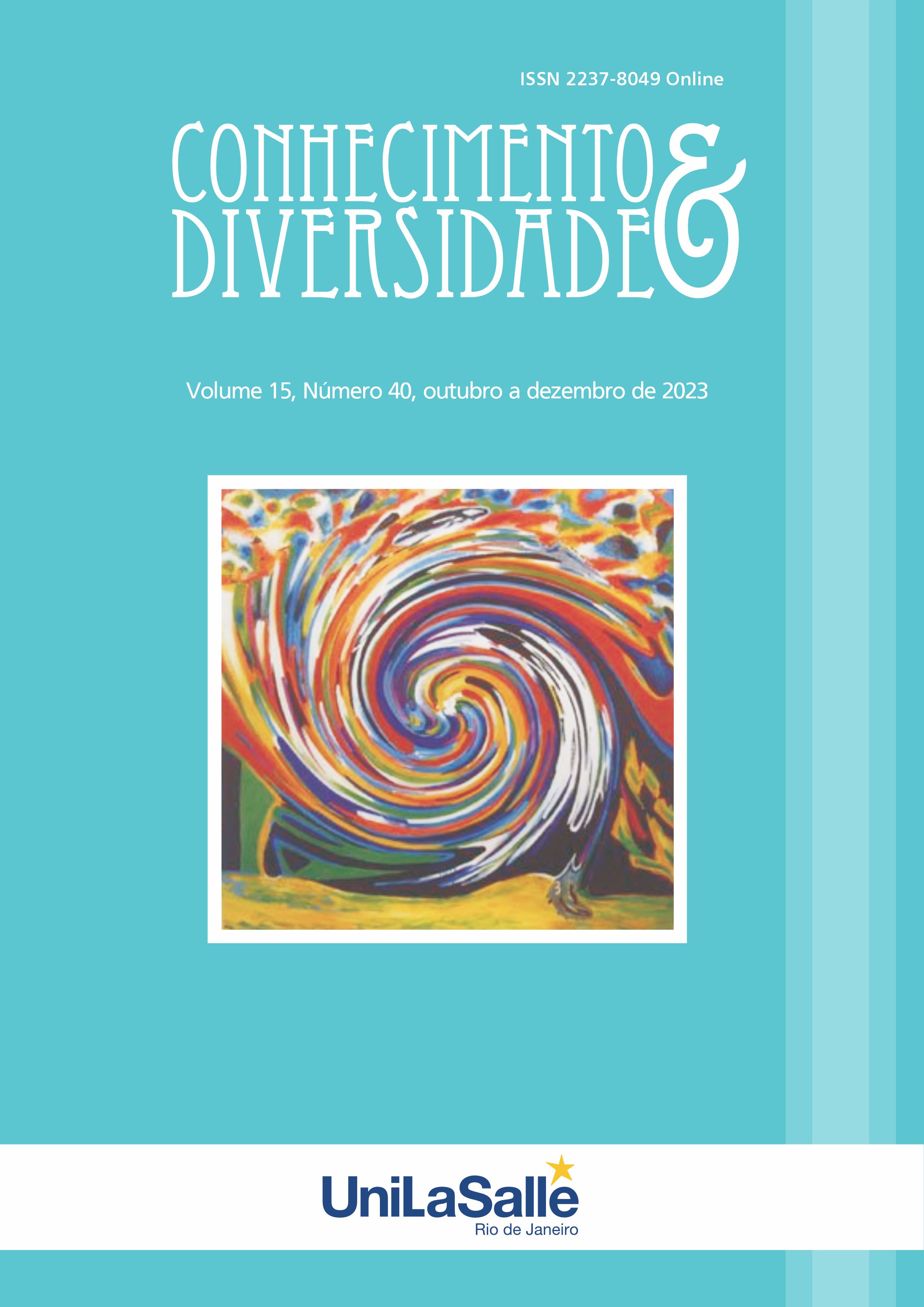MÉTODOS EDUCACIONAIS NAS DINASTIAS LY E TRAN:
CONCLUSÕES E IMPLICAÇÕES PARA A EDUCAÇÃO VIETNAMITA ATUAL
DOI:
https://doi.org/10.18316/rcd.v15i40.11292Palavras-chave:
Educação, Método, Significado, Período Ly-TranResumo
Ly e Tran foram as duas dinastias mais longas da história feudal do Vietnã e floresceram em todos os campos: militar, econômico, cultural, artístico, arquitetônico e educacional. Além do trabalho de defesa do país do exército e do povo do Dai Viet durante as dinastias Ly e Tran, a ideologia educacional desse período, incluindo os métodos educacionais, atendia e correspondia às características e exigências da sociedade do Dai Viet naquela época. É também um destaque notável das dinastias Ly e Tran. O artigo analisa e esclarece os métodos educacionais das dinastias Ly e Tran no Vietnã, fornecendo, assim, comentários e sua importância para a educação vietnamita atual. Assim, o método educacional das dinastias Ly e Tran se concentrava em dois métodos principais: o método "o professor lê - o aluno copia", memorizando histórias e textos antigos, e o método de perguntas e respostas, o método de ser uma lição para. A pesquisa também extrai três observações e dois significados (foco em métodos exemplares na educação; exames para selecionar pessoas talentosas para o país) ao aprender sobre métodos educacionais durante as dinastias Ly e Tran. A limitação deste estudo é que ele não mostrou e analisou as características dos métodos educacionais das dinastias Ly e Tran. O artigo está estruturado em três partes: (1) Métodos educacionais das dinastias Ly e Tran no Vietnã; (2) Algumas observações feitas ao aprender sobre os métodos educacionais durante as dinastias Ly e Tran; (3) A importância para a educação vietnamita atual ao aprender sobre os métodos educacionais das dinastias Ly e Tran no Vietnã de hoje.
Referências
Duong Quoc Anh (1998), Vietnam and historical events, volume 1, Publishing House. Social Sciences, Hanoi.
Anderson, James A (2020), The Ming Invasion of Vietnam, 1407-1427 in David C. Kang and Stephan Haggard (eds.) East Asia in the World: Twelve Events That Shaped the Modern International Order. Cambridge: Cambridge University Press, 2020.
Tran Ba De (Editor, 2002), Some topics on Vietnamese history, Publishing House. Ha Noi national university.
Communist Party of Vietnam (2021), Documents of the 13th National Congress, volume 1, Publishing House. National politics, Hanoi.
Tran Van Giau (1957), History of Vietnam from 1877 - 1914, Publishing House. Construction, Hanoi.
Tran Van Giau (1975), Vietnam's development from the 19th century to the August Revolution - The bourgeois ideology and its failure before the historical task, Publishing House. Social Sciences, Hanoi.
Tran Van Giau (1983), In the mainstream of Vietnamese literature - Patriotic ideology, Publishing House. Arts, City. Ho Chi Minh.
Tran Van Giau (1993), Ideological development in Vietnam from the 19th century to the August Revolution, volume 1, Publishing House. City. Ho Chi Minh.
Tran Van Giau (1993), Ideological development in Vietnam from the 19th century to the August Revolution, volume 2, Publishing House. City. Ho Chi Minh.
Tran Van Giau (1993), Ideological development in Vietnam from the 19th century to the August Revolution, volume 3, Publishing House. City. Ho Chi Minh.
Nguyen Hung Hau (Editor), Doan Chinh, Vu Van Gau (2002), General history of Vietnamese philosophical thought, volume 1, National University Press, Hanoi.
Cao Xuan Huy (1995), Oriental thought suggests reference points of view, Publishing House. Literature, Hanoi.
Momoki Shiro (2013), Local Rule of Dai Viet under the Ly Dynasty:Evolution of a Charter Polity after the Tang-Song Transition in East Asia, Retrieved from https://brill.com/downloadpdf/journals/arwh/1/1/article-p45_4.pdf
Min Zang (1984), Land policies of the feudal authorities of Vietnam and the process of their implementation in the 11-15th centuries, Collection of the All-Union Conference on Oriental Research, Science Publishing House, Moscow (in Russian).
O. W. Wolters (1995), On Telling a Story of Vietnam in the Thirteenth and Fourteenth Centuries, Retrieved from https://www.jstor.org/stable/20071701
Patricia Pelley (2020), The Historical Roots of Contemporary Vietnam, Retrieved from https://oxfordre.com/asianhistory/display/10.1093/acrefore/9780190277727.001.0001/acrefore-9780190277727-e-276;jsessionid=78a017e7124c1dc9db7ddf 722e20147e?rskey=akixx7
Van Tao (1999), History and reality, volume 2, Publishing house. Social Sciences, Hanoi.
UNESCO Center for Information and Documentation of Vietnamese History and Culture (1998), Innovation trends in Vietnamese history - Typical faces, Publishing House. Culture - Information, Hanoi.
Tran Mai Uoc (2010), Some thoughts on human resources for higher education management in the integration period, Proceedings of the scientific conference "Solutions to improve the effectiveness of Vietnamese higher education management" , Liaison Committee of Vietnamese Universities and Colleges (VUN), pages 335-339.
Tran Mai Uoc (2011), Understanding Ho Chi Minh's thoughts on educational methods, contacting the Vietnamese education sector today, Proceedings of the scientific conference "Celebrating 100 years of Ho Chi Minh's departure to find a way save the country", Quang Binh University, pages 261 - 269.
Tran Mai Uoc (2012), Developing Vietnamese education in the spirit of the document of the 11th National Congress of the Party, Saigon University Magazine, ISSN 1859 - 3208, No. 9, page 44 – 52.
Institute of Economics (1968), Land Revolution in Vietnam, Publishing House. Social Sciences, Hanoi.
Downloads
Publicado
Edição
Seção
Licença
Copyright (c) 2023 Tran Mai Uoc

Este trabalho está licenciado sob uma licença Creative Commons Attribution 4.0 International License.
Conforme recomendado pelo o Public Knowledge Project, a RCD adota para seus artigos uma licença CREATIVE COMMONS: Atribuição CC BY 4.0.
Esta licença permite que outros distribuam, remixem, adaptem e construam sobre o seu trabalho, mesmo comercialmente, desde que lhe dêem crédito pela criação original.
Esta é a licença mais adequada oferecida.
Recomendado para a máxima divulgação e uso de materiais licenciados.



